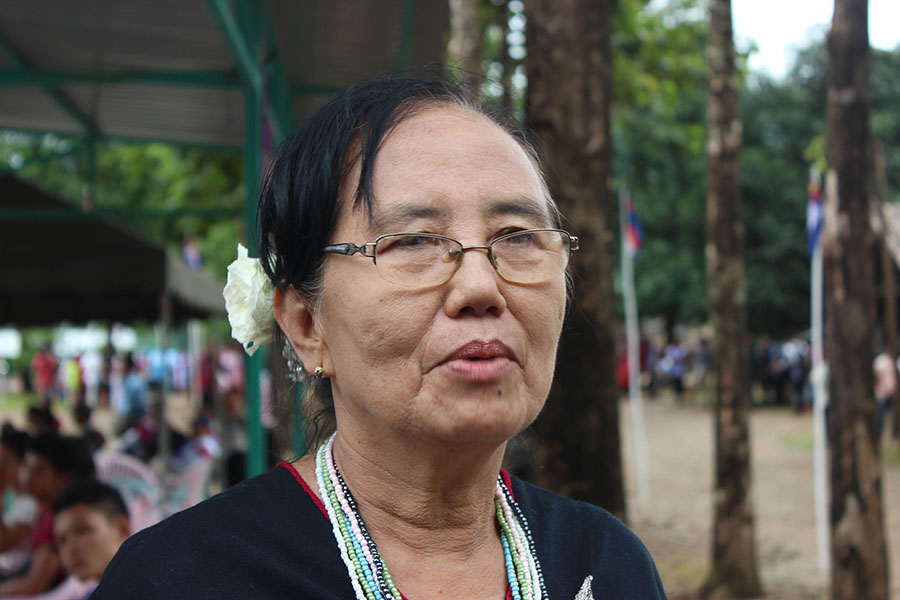Naw Kwut was a young Karen woman when she stepped on a landmine and lost her right leg while she was forced to act as a porter for the Myanmar Army 20 years ago.
“We were treated badly. They asked us to do everything for them,” she said, recalling her experiences in the jungle. She grew up in a village controlled by the Karen National Union (KNU)’s Brigade 1, in Thaton, Mon State.
Naw Kwut is one of the many women who survived the conflict, along with suffering torture and human rights abuses by Myanmar military troops. She fled to KNU-controlled territory on the Thailand-Myanmar border to seek help after losing a limb.
Now 45 years old, the mother of four children is working to help other disabled people. She worries about her children’s safety and education if she is to return to her village.
“I will not go back yet. People say we have peace, but there is neither peace nor tranquility for us,” she said, adding that many disabled people and their families share her concerns.
‘No Peace in the Jungle’
Even though there has been no engagement between the KNU and the government army in KNU-controlled territory for a few years, the women in those areas feel that there is no security for them to be able to return to their homes.
The KNU signed a bilateral ceasefire agreement with the government in 2012 and the nationwide ceasefire agreement (NCA) in late 2015. It is a leading ethnic armed group – along with NCA-signatory the Restoration Council of Shan State (RCSS) – negotiating with the government and the Myanmar Army to build federalism through the peace process.
The KNU has been conducting pilot surveys in areas where displaced persons and refugees are slated to return. But demining efforts have yet to start and land redistribution remains a challenge.
“It may be true that there is peace for those who live in the cities, but there has never been peace for people in the jungle and remote villages,” said Naw Kwut.
Naw Myaing Poe, the chief justice of the KNU, echoed her concerns. She said the area is not safe and that it is important that women look out for themselves.

Helping Others
Many women are no longer hoping that men will provide security and are preparing themselves. Some have joined the KNU in an effort to learn self-defense skills in case of further attacks or conflict.
One such woman is Nan Cho Cho Win, a villager in her young twenties from the Irrawaddy Region. She is a medic trainee in a community health program run by the KNU, where she and other women learn how to provide medical treatment, along with receiving basic military training.
She said it doesn’t feel as though there is peace and that the whole country seems to be in a fragile state.
“I joined so that I could help others without access to healthcare. And knowing defense techniques will prepare us in case of future clashes.”
The KNU also trains people from other ethnic groups who are keen to learn. Laydeya is an ethnic Naga woman who is training to be a medic. She is preparing to take her knowledge back to Naga territory.
“I came to learn because the Naga region faces many disease outbreaks as well as clashes,” she said.
Regarding the current peace process, she is less aware of it, but said she wants “peace between all ethnic groups.”
Women, Leadership and Peace
In the past, when Karen men were targeted for persecution under the allegation of supporting the Karen resistance, Karen women served as village heads and protected their people, despite lacking formal security training.
Karen State now has more female village heads than other areas around the country, according to a United Nations Development Program research study in 2015.
But in peace negotiations, men largely outnumber women in delegations representing the government and ethnic armed groups.
Women’s views need to be heard during peace negotiations, said Naw Myaing Poe.
“These women village heads would be happy to come to the table if they were invited. It’s sad that they aren’t, even after putting their lives at risk throughout our struggle,” she added.

















